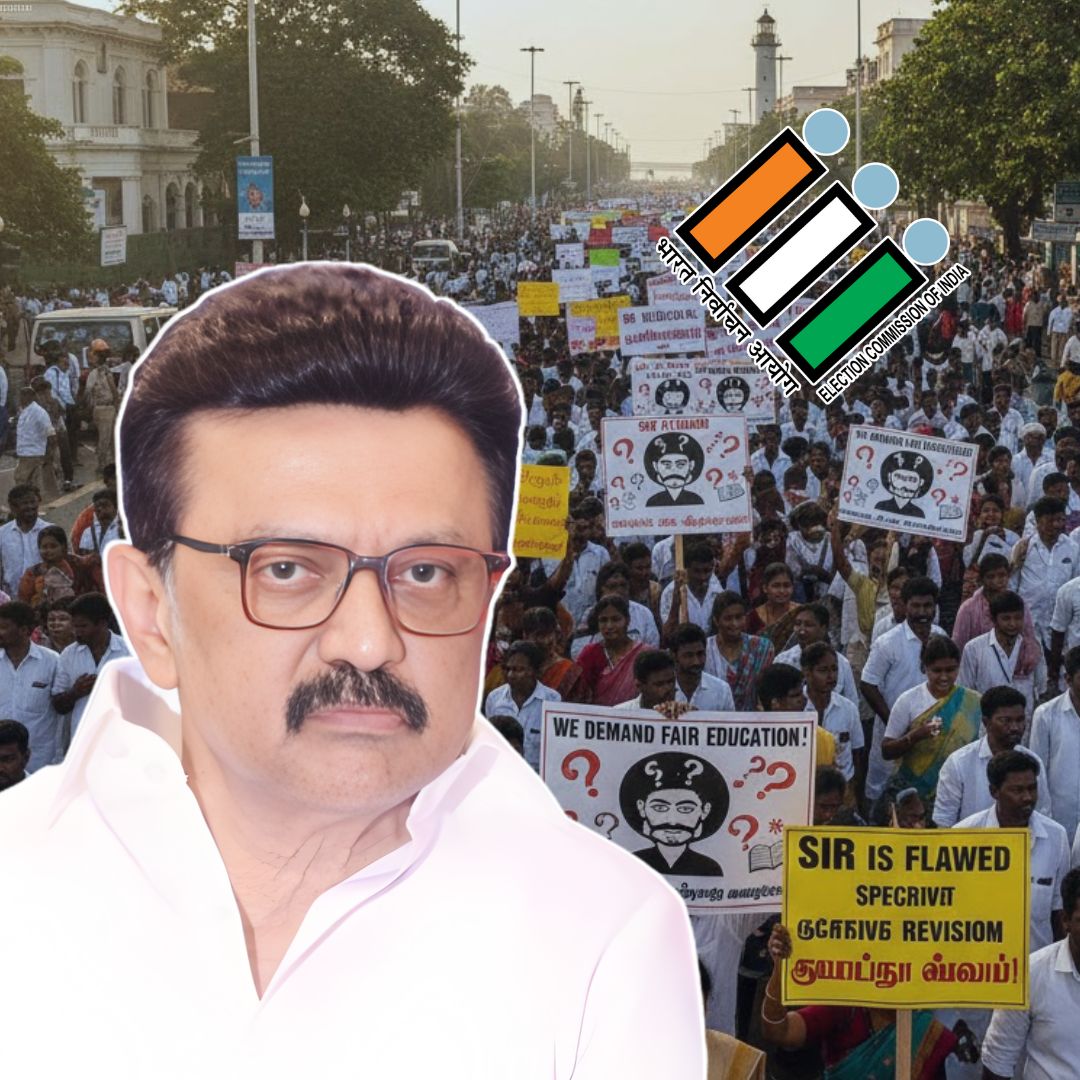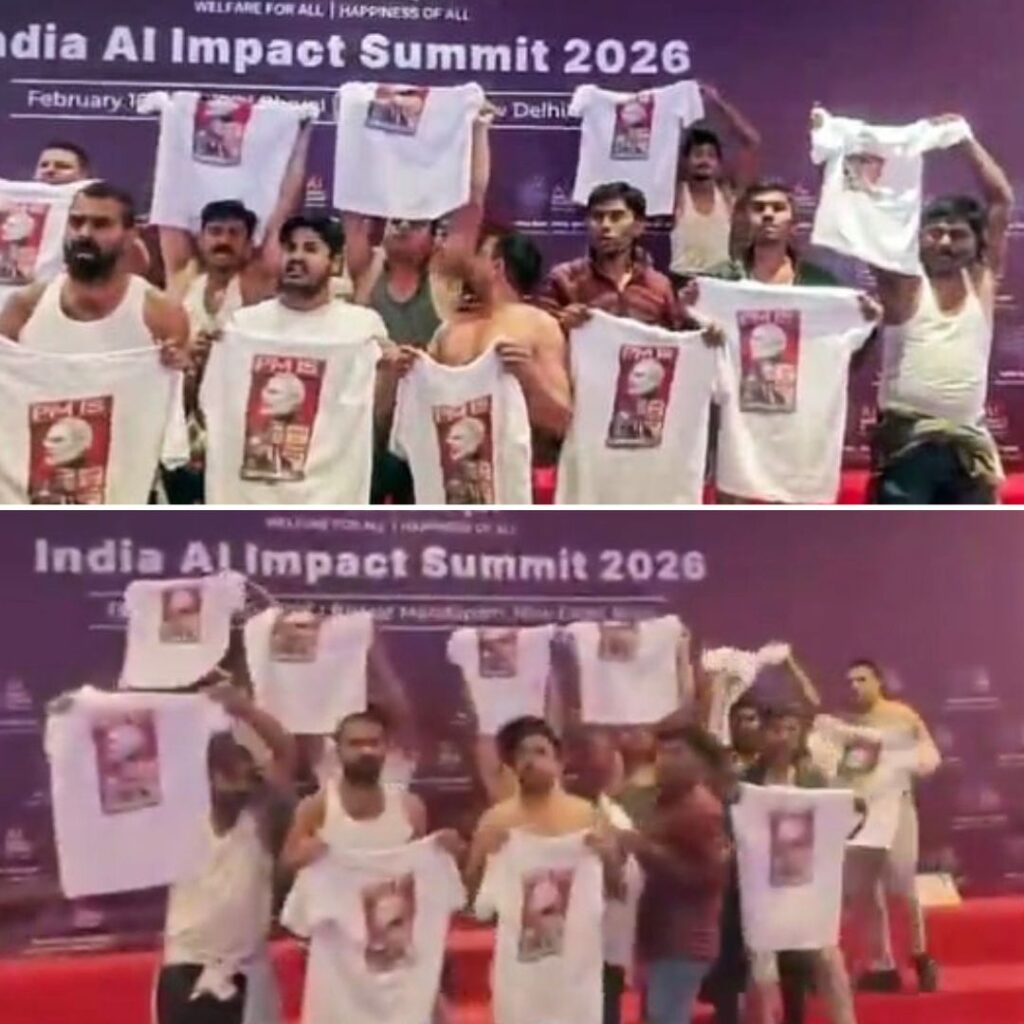Tamil Nadu Chief Minister MK Stalin has called the Election Commission’s Special Intensive Revision (SIR) of voter rolls “flawed and dangerous,” alleging it could lead to widespread voter deletions. He announced a statewide protest on November 11 to oppose the exercise and launched a DMK helpline to assist citizens in safeguarding their voting rights.
Stalin warned that the hurried and confusing process threatens the inclusion of genuine voters, particularly marginalised communities, and accused officials of failing to conduct the revision properly. The ruling DMK has also filed a petition in the Supreme Court challenging the SIR procedure ahead of the 2026 Assembly elections.
Protest Against SIR Alleged Flaws
Stalin criticised the SIR exercise for rushing through voter roll revisions with inadequate timelines and unclear forms, which he said could confuse even well-educated voters. He alleged that booth-level officers (BLOs) were not performing their duties effectively, with limited household visits and insufficient forms distributed, resulting in potential deletion of eligible voters from the rolls.
Emphasising that the DMK is not against electoral roll corrections but the current implementation, he urged people to remain vigilant and participate actively in the revision. He announced protests coordinated with alliance partners across all district headquarters on November 11 to contest what he described as an attempt to undermine democracy.
The revision exercise, ordered by the Election Commission of India (ECI), aims to ensure that voter lists are accurate, inclusive, and free from duplicates or invalid entries. This 2025 SIR is one of the largest voter-list clean-ups conducted nationwide, involving extensive fieldwork and scrutiny.
தமிழ்நாட்டைச் சூழ்ந்துள்ள #SIR ஆபத்து: கேள்விக்குறியாகியுள்ள பல கோடி மக்களின் வாக்குரிமை
— M.K.Stalin – தமிழ்நாட்டை தலைகுனிய விடமாட்டேன் (@mkstalin) November 9, 2025
நம் மக்களின் வாக்குரிமையைப் பாதுகாக்க, கழகத்தினர் கண்ணும் கருத்துமாக இருந்து மேற்கொள்ள வேண்டிய அவசர நடவடிக்கைகள் குறித்தும்,
வரும் 11-ஆம் நாள் அனைத்து மாவட்டத் தலைநகரங்களிலும் #SIR-க்கு… pic.twitter.com/Ar3JjNsdqB
What Is Special Intensive Revision?
The SIR is a comprehensive process where electoral rolls are reviewed and updated to include eligible voters and remove duplicates, deceased, or shifted voters. Tamil Nadu is part of a larger group of nine states and three Union Territories undergoing this revision phase, encompassing over 51 crore electors nationally.
The process began in early November and runs through December 4, 2025, involving more than five lakh Booth Level Officers (BLOs) who carry out house-to-house enumeration. Each elector receives a partially pre-filled enumeration form, which they must verify and return to confirm their registration details. New voter registrations are also facilitated during this period.
Political Opposition and Public Concerns
While DMK expresses mistrust, other political parties like AIADMK and BJP support the revision, citing the necessity to keep electoral rolls clean ahead of upcoming polls.
The Election Commission and Tamil Nadu’s Chief Electoral Officer assure voters that no legitimate voter’s name will be removed unfairly, emphasising procedural transparency and opportunities for corrections post enumeration.
Process and Safeguards
During the enumeration phase, BLOs visit households multiple times to distribute and collect forms. Voters need only fill and sign their forms, no documents are required at this stage. Defective or incomplete forms do not result in removal; those who return filled forms are included in the draft roll. A separate list of absent or deleted voters, with specified reasons, is published after the draft rolls appear.
Voters who find errors or omissions may rectify details or apply for inclusion from December 9, 2025, to January 8, 2026, through prescribed forms. The ECI’s voter-friendly measures include a toll-free helpline and digital facilities like “Book-a-call with BLO” via ECINet App. Supervisory officers monitor the process continuously to correct any discrepancies promptly, upholding electoral integrity.
The Logical Indian’s Perspective
An accurate, inclusive voter list is fundamental to democracy’s health. While vigilant oversight is necessary to prevent flaws and disenfranchisement, constructive collaboration between institutions, political actors, and citizens is essential.
Transparency from the Election Commission, responsiveness from political parties, and proactive verification by voters can together ensure every eligible Indian’s voice is heard in the ballot box. It is a shared responsibility to guard against misinformation and politicisation of electoral management.
S.I.R-ஐ ஏன் எதிர்க்கிறோம்?#SIR குறித்து எதிர்க்கட்சிகள் செய்யும் பரப்புரைக்குப் பதில்!
— M.K.Stalin – தமிழ்நாட்டை தலைகுனிய விடமாட்டேன் (@mkstalin) November 9, 2025
S.I.R குறித்த பொதுமக்களின் சந்தேகங்களுக்கு உதவி எண்: 08065420020#தமிழ்நாடு_தலைகுனியாது #தமிழ்நாடு_போராடும் #தமிழ்நாடு_வெல்லும் pic.twitter.com/LPjsNsHJqv













